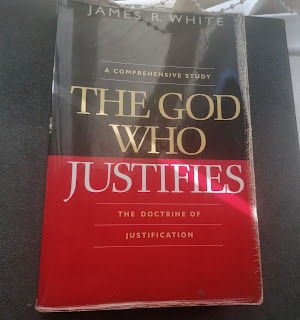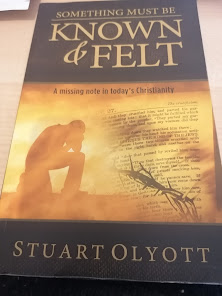Book Review: The God Who Justifies
The question: how is one to be brought back into a relationship with God? What is the method in which God declares a sinner right in His eyes? In the atonement, one of the elements that works to answer these matters, is what is known by the word Justification. God, in His most holy wisdom, brings forth the guilty sinner before His heavenly bar and in His holy court for sentencing. And due to what His Son had done on behalf of this sinner declares him to be not guilty of any crime for His Son has taken His place for the punishment. Let me just make a point on how important this truth is in the whole scheme of things: for about 1000 years the church laity were forbidden to know what the scriptures taught and only allowed to know what Rome wanted them to know which was Justification by faith and works. In the 16th century a monk called Martin Luther rediscovered through reading and studying the scripture came to see this as an error. And he sought to show the truth of Justification by faith alone from scriptures.
In his work 'The God Who Justifies', James white, brings us a masterful work which gives us a most in depth understanding of this truth from both a historical and exegetical stand-point. This book stands at 374 pages. And here is what some other teachers in the faith have to states on this: "Finally a contemporary, exegetical, doctrinal, and able defence of the historic Protestant doctrine of Justification by God's free grace by faith in Jesus Christ alone." (Joel Beeke) And then this one: "I lost sleep over this book! I simply couldn't put it down. James White writes the way an exegetically orientated pastor appreciates.... there is solid meat throughout." (Jay E Adams). And there are other but this is enough to see the importance of both the doctrine and good and helpful works on are for the Church today. Let us be thankful.
Now let us get down to the content of this work: the first half of the book is historical in nature, giving us a through account of how this truth was rediscovered in the 16th century by the reformers; particularly, Martin Luther. But even here he does not shy away from providing us with some key truths declared by exegesis such as Holiness of God (chapter 1; pg. 17-24); sinfulness of man (chapter 3; pg. 48-62) an introduction to Justification (chapter4) The old testament background (chapter 5). And what may be the single most important chapter (no. 6): 'the grounds of Justification: the cross of Christ.' As it goes through some of the important elements of the atonement such united with Christ; forgiveness of sins; wrath; propitiation; nature of saving faith. After all of this Historical related matter he goes through many of the New Testament text which without a doubt demonstrate this most glorious truth.
Though this next quote comes from another of His works, it is perfectly apt in this matter: "Church history has repeatedly and clearly proven one thing: Once the highest view of Scripture is abandoned by any theologian, group, denomination, or church, the downhill slide in both its theology and practice is inevitable.”

